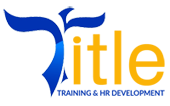| Code | Date | City | Fees | Register |
|---|---|---|---|---|
| T010 | May 5, 2024 - May 9, 2024 | Istanbul | $ 5000 |
Register Course.. |
| T010 | August 19, 2024 - August 21, 2024 | Online | $ 1200 |
Register Course.. |
| T010 | November 3, 2024 - November 7, 2024 | Dubai – UAE | $ 5000 |
Register Course.. |
| T010 | February 17, 2025 - February 19, 2025 | Roma | $ 3000 |
Register Course.. |
________________________________________________________________________________________________
Objectives
- On completion of the course, you should:
- Be able to understand the fundamentals of the many aspects of performance of stationary gas turbine engines used in the power generation industries.
- Have a good background to enable an appreciation of the operational problems associated with gas turbines used for power generation.
- Have an understanding of the different types of, Turbines, Fans and compressors.
- Be able to operate Turbines, Fans and compressors as close as possible to the design efficiency.
- Will be able to monitor Turbines, Fans and compressor efficiency, availability and reliability.
- Have learnt about selection, operation and maintenance strategies.
- Be able to troubleshoot Turbines, Fans and compressor problems.
The Delegates
- This course is directed towards Supervisors, Team Leaders and Professionals in Maintenance, Engineering and Production. It is suitable for who expects to become involved at any stage in project applications and applicable maintenance technologies.
- The course will also benefit anyone those wishes to update themselves on Gas Turbines technology, judge the suitability of different types of Turbines, Fans and compressors for their needs, and learn how to operate and maintain them for the benefit of their organisations .
- The course will be of most benefit to delegates currently working in the maintenance and operations departments of the power generation industry. The course will, however also be very beneficial to those involved in the procurement of new and replacement equipment.
The Contents
- Introduction and course overview.
- Maintenance Science and Technology
- Protective Maintenance
- Predictive Maintenance
- Preventive Maintenance
- Productive Maintenance
- Troubleshooting
- Repairs and Corrective Maintenance
- Overhaul
- Total Productive Maintenance (TPM)
- Goals of TPM
- Components of TPM
- Overview of Gas Turbine Technology and Applications :
- Simple cycle gas turbine performance in terms of power, fuel consumption and thermal efficiency.
- Effect of fuel choice on corrosion, emissions, component life etc.
- Effect of ambient temperature and pressure on performance. Performance enhancement through compressor cleaning, intake water misting, intake air filtration, etc.
- The performance benefits of using Combined cycle gas turbine performance and cogeneration. The use of inter-cooling and reheat.
- Rotating Components and Matching
- Compressor and turbine design and performance.
- Characteristics and matching.
- Compressor surge and its prevention.
- Vibration and Rotor Dynamics
- A review of vibration will include specific problems such as blade vibration and shaft critical speeds.
- Case histories which illustrate vibration with the fatigue failure of components.
- Rotor instability.
- Spectrum analysis for the solution of resonance, instability, and gear and blade problems.
- Performance Analysis for Problem Detection
- The fundamental concepts of performance analysis as a tool for saving energy costs.
- Basic and applied thermodynamics for gas turbines.
- The use of performance data to pinpoint problem areas.
- Diagnostics related to fouling, nozzle erosion, blowing surge, choke, etc. Meaningful trending methods.
- Gas Path Analysis for Stationary Gas Turbines
- Simulation of degraded gas turbines, the application of fault coefficient matrices, fault trees and other techniques.
- Implications for component life and emissions.
- Gas Turbine Fouling
- The causes and effects of fouling in compressors including increased fuel flow, reduced efficiency, reduced mass flow, reduced surge margin, turbine blade creep life, etc.
- The effects of inlet air filtration on engine performance.
- Gas Turbine Repair
- The techniques of inspection and repair of gas turbines are described in detail, including NDT techniques, cleaning, plating, heat treatment, welding, etc.
- Gas Turbine Maintenance
- Maintenance techniques using borescopes. Spectrum analysis including acoustic monitoring.
- Techniques for checking and conducting repairs on impellers, diffusers, bearings, couplings, and foundation repair.
- Special Considerations for CHP Gas Turbines
- Considerations in the design, operation and maintenance of turbines and associated equipment.
- Off design operational effects on heat recovery steam generators, STTG cycles and evaporative cooling.
- Course summary .
Notes:
- Great Discount for companies and governmental Organizations .
- All programs are held in five star hotels .
- All lecturers have sufficient knowledge and experience to implement the programs at an optimal level .
- Large package of services is offered to the participants .
The Discount
10% in case of Three P. (or more)
